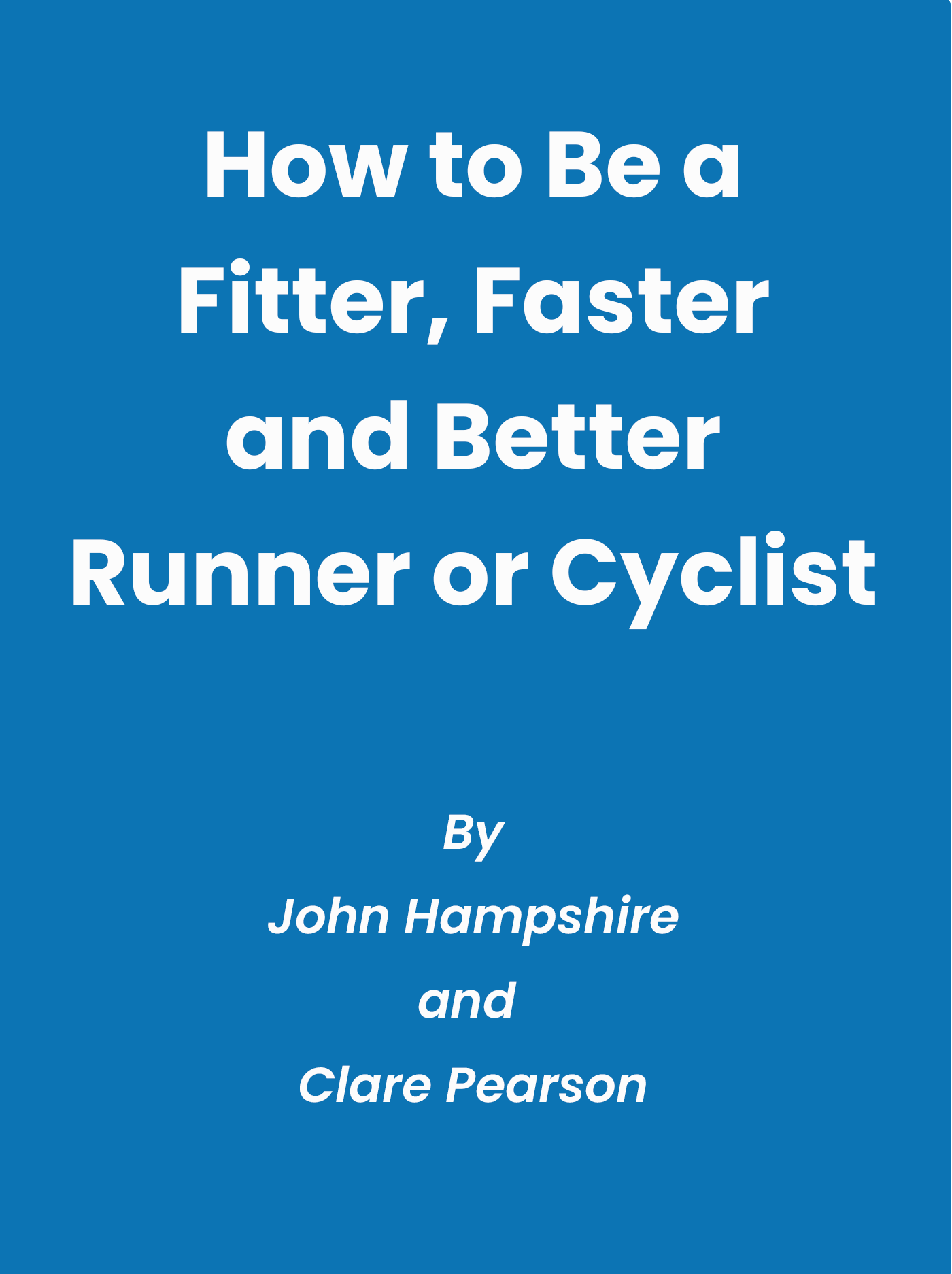How Long-Term Stress Affects Endurance Training

Whilst training can be a really good way to destress there have been times in my life when I have been so stressed it has impacted my training by both limiting my performance and causing me to feel over-trained without any real increase in either volume or intensity. In 2013 I probably experienced one of the most stressful periods of my life; whilst I continued to train throughout this period, by 2014 I was exhausted and although I tried to continue training I was experiencing all the symptoms of over training without any real increase in training volume. So the effect of emotional stress was that with no extra training I managed to become over-trained and under-perform.
So how did stress have such a drastic effect on my training? When we are using up a lot of energy on stress this can limit the energy we have left for good quality training; in addition to this when emotionally stressed it can take us longer to recover. Unfortunately it is difficult to monitor this closely as emotional stress is very subjective; what causes debilitating stress for one person is a perfect motivator for another. Add to this the fact that there are very little studies on the effect of emotional stress (outside sport) and it’s effect on athletes and we begin to see a problem in both assessing and knowing how to respond (as coaches and athletes) during periods of high stress outside of sport. Here is a summary of some of the things I have found.
Side Effects of Stress
Stress, by which I mean being in a period of heightened anxiety for a prolonged period of weeks/months has many well-known side-effects including but not exclusively:
- Lack of sleep or poor quality sleep
- Upset stomach
- Frequent headaches
- Raised heart rate
- Poor cognitive function (forgetfulness, difficult making decisions)
- Poor affect management (grumpiness, emotional outbursts)
- Elevated blood pressure
- Anxiety and/or panic attacks
- Depression
It doesn’t take a genius to work out that the above by no means exhaustive list of symptoms could all alone contribute to disrupted training due to poor health, general low motivation and poor athletic performance. In their study using university players in a variety of sports (Effects of Anxiety on Athletic Performance, October 2017) Muhammad, Khushdil Khan, Alamgir Khan, Sam Ulla Khan and Salahuddin Khan note players agreed that anxiety and its symptoms negatively affected performance, physiologically, psychologically and behaviourally. However, for the really determined athlete (and there are a lot of you about) this is by no means always stops you from training, particularly if in the past going out training has actually helped some or all of the symptoms.
It Stops Us Recovering Properly
It is important to remember that training is a stress – you are over stressing/over-reaching your body in order to improve performance. Some training apps (e.g. TrainingPeaks, HRV4Training) are now monitoring mood and sleep patterns and HRV4 in particular will give feedback based solely on the subjective questionnaire even if your heart rate variability score is within the normal range. Kellman and Kölling (Recovery and Stress in Sport: A Manual for Testing and Assessment, 2019) also note the importance of stressors outside sport affecting an athlete’s ability to recover. It is the athlete’s ability to recover which will dictate their overall fitness gains. So if we cannot adequately recover from a hard work out because of other stresses the fitness effects of the work out will be lost. In fact, Kellman and Kölling describe the first stage of over-training is actually under-recovery.

What Kellman (Enhancing Recovery: Preventing Underperformance in Athletes, January 2002) found through his research was it was not good enough simply to stop doing sport in order to effectively recover. We actually need to actively engage in things that will help us recover and take a proper break from training. This might mean socialising, meditating, reading a good book, listening to (or playing) music or something else for you; the key is to engage in something that you enjoy which is not training. My own view on this is not only does this help take your mind off training, it also helps you realise that training is not everything, there are other things in life that you can enjoy and invest in outside of your sport, helping you put sport in its proper context within your life.
Increased Levels of Cortisol
Another known side effect of stress is increased levels of the hormone cortisol in the body. This hormone is directly responsible (amongst other things) for the flight or fight response we use for short term energy bursts. So what happens to our training if we have prolonged high levels of cortisol in our bodies? Well one study of élite swimmers (Lemyre, 2005) measured their cortisol levels at various stages of the season, from base (easy) phase up to peaking phase. It was suggested that high variation from base levels of cortisol was detrimental to recovery and could lead to overtraining and burnout. Whilst in this instance, the measure was based around training stress, if outside stress is adding to your base levels of cortisol it seems logical to assume that this is going to negatively affect recovery; this would be a good physiological explanation for what happened to me in 2014. If our cortisol levels do not return to base levels during a prolonged period of time, it’s as good as over-training.

In addition to this, Jacks et al confirmed that cortisol is released into the blood during, particularly high intensity, exercise (Effect of Exercise at Three Exercise Intensities on Salivary Cortisol, Journal of Strength and Conditioning Research, pp 286-9, 2002). The more stressed you are, the more time you will need to spend recovering before you will be ready to train (hard) again. So, smart endurance training when stressed might be to actually cut down the number of hard sessions you have per week and increase the number of rest days to give your body the extra time to recover. During 2013 I continued to train both hard and with high volume. Looking back, had I trained less and given myself more recovery during that stressful period I could have avoided that 6-12 months of misery and frustration.
There are additional things that you can do to help lower your cortisol; in particular meditation and mindfulness have been shown to lower cortisol (see ‘Effects of Mindfulness Medication on Serum Cortisol in Medical Students,Wanpen Turakitwanakan MD, Chantana Mekseepralard PhD, Panaree Busarakumtragul PhD, J Med Assoc Thai 2013; 96 (Suppl. 1): S90-S95). In addition to this, having fun is a good way to reduce levels of stress hormones like cortisol in the body; studies have shown that engaging in laughter is highly effective at reducing epinephrine, cortisol, dopamine, and growth hormone (Connecting Laughter, Humour and Good Health, Carol Whipple, May 2008 rev. January 2018) ; this fits closely with the research of Kellman and Kölling around engaging in activities to de-stress.
Maladaptive Coping When Stressed
So why did I continue to train hard during this time? If I’m honest this was probably a maladaptive coping strategy; I was using my running to escape from life’s problems rather than as a way of de-stressing so that I could properly face them. When we start using sport in a maladaptive way, bad habits start to creep in, like training when we are too tired/not properly recovered, training in an obsessive way rather than seeking out enjoyment from it. When this is combined with other maladaptive coping strategies (increased alcohol use for example) this further negates both performance and our ability to recover creating an even greater risk of burn out/over-training.
Low Self-Esteem
Sport has long been identified as a good way to increase self-esteem. However this has been shown to be strongly linked to internal rather than external motivation. Low self-esteem is strongly linked to sport being externally motivated (e.g. by real or imagined performance goals set out by others). This can lead to an obsessive attitude to the sport and an unhealthy belief that self-esteem is maintained by winning/achieving. It can also lead to heightened stress during competition which in turn has a negative impact on performance. Knowing your own personality and motivation for sport is therefore important in terms of managing stress levels both in and outside of training. When you are feeling pressure from work/family etc, the last thing you are going to need is even more pressure to perform in your hobby, especially when the likelihood of you being able to perform well is decreased!
Lack of Social Support

At times of stress it can be easy to put strain on or withdraw from our support network. As either the cause or bi-product of stress this can have a profound negative effect on our self-esteem as well as increasing our levels of anxiety still further. Having a good support network of our choosing (whether that consists of 20 people or three) is an important aspect of our humanity. It may be that at times of stress we actually need to spend more time nurturing and seeking support than at others and this may be at the cost of training time, but may also be an ultimate good investment. It may also mean that some of our training has a more social purpose than a performance purpose. Shifting both the amount of training we do and the focus of that training can be a good way to ensure that we are better managing our stress and our long-term sporting performance.
In summary, stress can have a profound impact on both our ability to train and the time it takes to to recover and during times of high stress, the wise athlete will always fall back on caution, including:-
- deciding for themselves whether or not to prioritise training/racing and changing their plans accordingly
investing in recovery by allowing more time to recover and ensuring that recovery time is constructive
- shifting the focus on training as necessary from achieving fitness to spending time with a support network/de-stressing.
- maintaining self-esteem by keeping goals within and without sport personal and achievable
- being mindful of their own physical and psychological capabilities and adapting their training accordingly.
- regardless of life stresses having a period of time off at the end of each season/big race where they rest/do other things or very light training.
Additional questions
How do I know if I’m too stressed to train? If training is becoming a chore rather than a pleasure and your body is not responding physiologically to the session (e.g. your are significantly off pace, your heart rate is not responsive or is soaring high when your perceived effort is easy) it’s probably time to have a think. This might mean just taking a session or two off, of you are experiencing symptoms of over-training some significant time at lower intensity training or a full rest.
What if losing fitness causes me to feel stressed? If you are a competitive athlete this is likely to be the case. It’s important to think about the bigger picture and to remind yourself that training yourself into a pit of tiredness will only lead to poor results and fitness longer term. Your body cannot get fit unless it is adequately recovered because it’s in the recovery that the fitness happens.
April 4, 2020

Comments